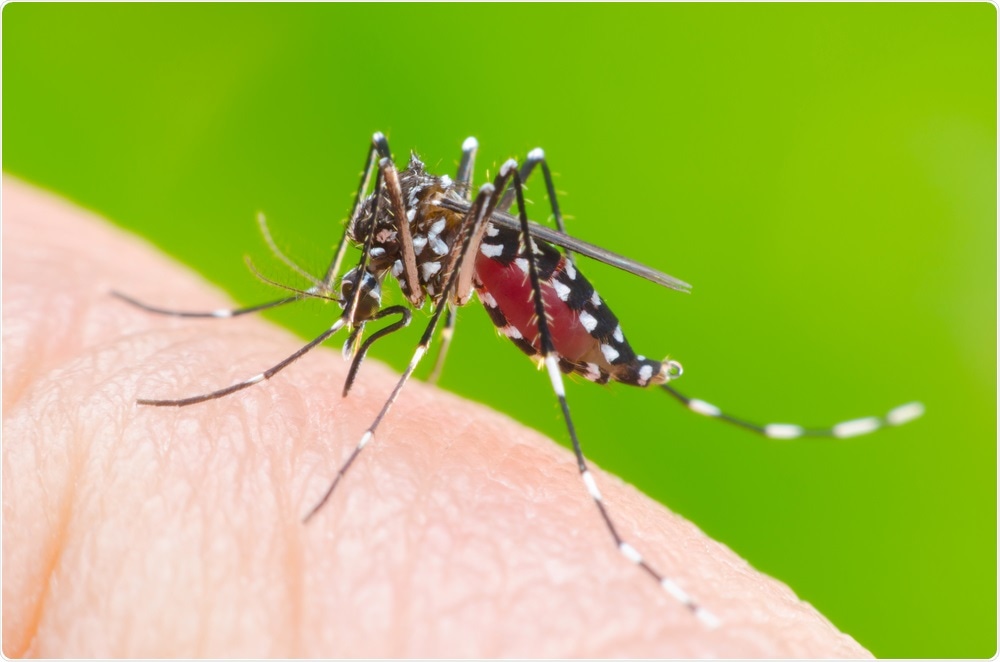The actively spreading coronavirus disease (COVID-19) first emerged in China in December 2019. More than six months after, the world grapples with nearly 11.8 confirmed cases of the viral infection. Now, as China slowly starts to reboot its economy and ease lockdown restrictions, two new health issues are emerging.
A new case of the deadly dengue fever, a disease caused by infected mosquitoes, was reported in China, within a day of the city of Bayannur in the Chinese region of Inner Mongolia, issuing a warning of a bubonic plague threat. The plague cases have been tied to the consumption of marmots, a relatively large ground squirrel.
Dengue fever case
Now, the eastern Chinese city Guangde has detected a new case of Dengue fever on July 5, in a patient who had previously traveled to India, Pakistan, and Myanmar.
The patient is currently receiving treatment at a local hospital since being diagnosed with Dengue. Local health officials say they are carrying preventive measures in nearby neighborhoods, such as cleaning the surroundings and removing potential breeding grounds of mosquitoes.
Dengue outbreak in other countries
Singapore is currently battling two outbreaks, the coronavirus pandemic and a recent dengue fever spread. On July 6, the country has reported 15,273 Dengue fever infections, according to the National Environment Agency (NEA).
The previous week, Singapore reported 1,454 cases of Dengue fever, and at least sixteen people have succumbed due to the virus.
Meanwhile, Laos reported 80 new confirmed cases of Dengue fever, bringing the total number to 2,564 infections. Laos capital Vientiane reports the highest number of infections, with seven deaths occurring since January.
What is dengue fever?
Dengue fever is a condition caused by the Dengue virus (DENV) carried by Aedes aegypti mosquitoes. The mosquito-borne viral infection produces only mild illness but can progress to a potentially fatal complication, called severe Dengue.

Aedes aegypti mosquito. Image Credit: khlungcenter / Shutterstock
Dengue fever is common in some Asian and Latin American countries, with tropical and sub-tropical climates. Currently, there is still no approved treatment and vaccine for dengue fever, but vaccines are being developed.
The incidence of Dengue has skyrocketed across the globe in recent decades. Though most of the cases are mild to moderate, some cases progress to severe illness, causing fatal complications.
The World Health Organization (WHO) says that modeling estimates that there are about 390 million dengue virus infections each year, of which 96 million manifests clinically or develop symptoms. Further, about 3.9 billion people are at risk of infection with dengue viruses, wherein 70 percent of the cases occur in Asia.
The number of Dengue cases reported increased over 8-fold over the last two decades. In 2000, there were 505,430 cases reported, and this increased to more than 2.4 million in 2010, and a staggering 4.2 million in 2018. The reported deaths increased from 960 in 2000 to 4,032 in 2015.
How to spot dengue fever?
Dengue fever symptoms include fever, headache, body pains, nausea and vomiting, rashes, and low white blood cell count or leucopenia.
When the disease progresses to severe illness, the symptoms worsen. These include persistent vomiting, liver enlargement, stomachache, restlessness, mucosal bleeding, severe plasma leakage leading to shock, severe bleeding, and internal organ impairment.
There is no specific medication to treat Dengue, and treatment includes providing comfort and relief for the symptoms of the illness.
Preventive measures can help reduce the risk of dengue fever, especially in areas where the illness is common. The breeding ground of mosquitoes, such as stagnant water in vases, bowls, and containers, should be cleaned or changed every alternate day. Clean drains, gutters, and check the surroundings for any discarded item housing stagnant water.
Use mosquito nets and screens wherever possible, and wear long sleeves and pants to prevent mosquito bites. Mosquito repellents are also useful, especially when going outdoors.
When traveling overseas, especially in dengue-prone areas, choose a hotel with air conditioning, screened windows, and screened doors. Sleep under a mosquito bed net if you are outside or in a room without screens.
Preventing mosquito bites is an effective way to reduce the risk of dengue fever, which can be potentially fatal.